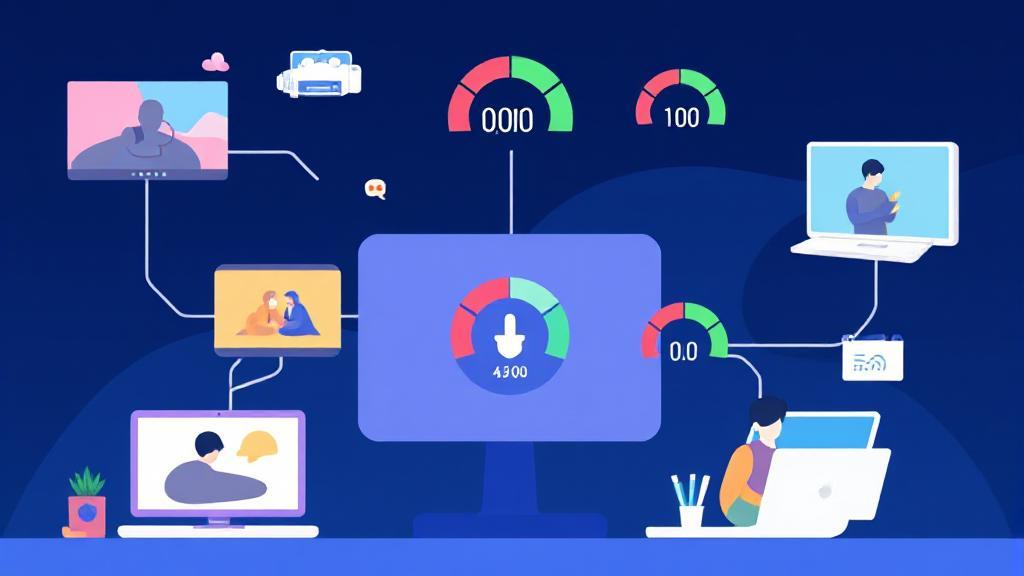Introduction
In today's digital age, having a reliable internet connection is crucial for both work and leisure. Download speed, which refers to how quickly data from the internet can be transferred to your device, is typically measured in megabits per second (Mbps). Understanding optimal download speeds for various activities can help you choose the right internet plan and ensure a seamless online experience.
Basic Internet Activities
For fundamental internet tasks, you don't need blazing fast speeds:
- Web browsing: 1-5 Mbps
- Email: 1 Mbps
- Social media: 2-3 Mbps
- Online banking: 1 Mbps
Streaming Media
Video Streaming
Different streaming qualities demand different speeds:
| Resolution | Required Speed |
|---|---|
| SD (480p) | 3-4 Mbps |
| HD (720p) | 5-8 Mbps |
| Full HD (1080p) | 8-12 Mbps |
| 4K UHD | 25+ Mbps |
Popular services like Netflix and YouTube recommend at least 15 Mbps for 4K streaming.
Music Streaming
- Standard quality: 0.5-1 Mbps
- High quality: 2-3 Mbps
- Hi-Fi quality: 5-10 Mbps
Gaming
Console Gaming
- Minimum: 3 Mbps
- Recommended: 15-25 Mbps
- Optimal for competitive gaming: 50+ Mbps
Cloud Gaming
Services like Google Stadia and Xbox Cloud Gaming require:
- Minimum: 10 Mbps
- Recommended: 20-35 Mbps
Video Conferencing
For platforms like Zoom or Microsoft Teams:
- Basic video calls (1:1):
- Standard quality: 1-2 Mbps
- HD quality: 3-4 Mbps
- Group video calls:
- Standard quality: 2-3 Mbps
- HD quality: 4-8 Mbps
File Downloads and Large Transfers
Download times for a 1GB file:
Factors Affecting Speed
Several factors can affect download speeds:
- Network congestion
- Wi-Fi signal strength
- Router capability
- Device limitations
- Server location and capacity
- Type of internet connection (DSL, cable, fiber-optic)
- Number of devices connected to the network
Professional Requirements
For work-from-home scenarios:
- Basic office work: 10-20 Mbps
- Creative professionals:
- Video editing: 50+ Mbps
- Large file transfers: 100+ Mbps
- Software development: 25-50 Mbps
For smooth operation with 4 users simultaneously streaming HD content, gaming, and browsing, a connection of at least 50-100 Mbps is recommended.
Measuring and Upgrading
To measure your download speed, use online tools like Speedtest.net or Fast.com. If your speed isn't meeting your needs, consider:
- Checking with your ISP for faster plans
- Comparing prices and speeds from different ISPs
- Upgrading to fiber-optic connection for faster and more reliable speeds
For most households today, a connection of 100-200 Mbps provides a comfortable buffer for multiple users and activities. Visit the Federal Communications Commission (FCC) website or consult with your ISP for more information on internet speeds and plans.
